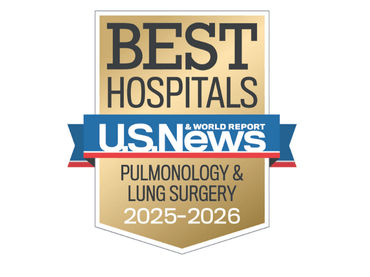Receive comprehensive treatment and surgical care for lung and esophageal conditions at the UPMC Esophageal and Lung Surgery Institute.
With more than 15 surgeons and 170 other health professionals, you’ll receive expert and caring treatment from our team of thoracic experts.
We will carefully assess your individual thoracic needs and develop a customized treatment plan that best fits your situation.
Chest Conditions We Treat
As one of the first medical centers in the country to perform minimally invasive surgery for esophageal and lung cancers, UPMC is a leader in treating cardiothoracic conditions of all kinds, including:
Why Choose UPMC for Thoracic Surgery?
- World-class specialists offering comprehensive care: At the UPMC Esophageal and Lung Surgery Institute, you have access to the many specialists working with innovative therapeutic treatments and surgical techniques.
- Advanced tools and minimally invasive techniques: Using state-of-the-art technology, such as the da Vinci® Surgical System, our surgeons perform minimally invasive robotic thoracic surgery. Robotic surgery is one of the most effective and least invasive surgical treatment options available today.
- A national leader in thoracic surgery: Our experience with complex thoracic diseases and our knowledge of the latest diagnostic, surgical, and medical techniques have helped establish UPMC as a national leader in serving people with lung and esophageal conditions.
- Leadership in lung and heart-lung transplantation: 1,700 lung and heart-lung transplants performed since 1982 (largest volume in United States).
- Contributors to research that has helped advance the field of lung and thoracic surgery: Largest series of minimally invasive esophagectomies (more than 1,000) ever performed to study and evaluate outcomes.
- UPMC Presbyterian Shadyside is nationally ranked in pulmonology by U.S. News & World Report.
Learn more about thoracic treatments and procedures provided by the UPMC Esophageal and Lung Surgery Institute.

















